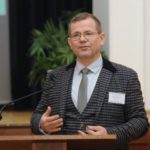PLATINUM’s consortium is established by University of Agder (coordinator) connecting 8 universities from 7 countries: Czech Republic, Germany, Netherlands, Norway, Spain, Ukraine, and United Kingdom.
In all partner universities, project participants teach mathematics or statistics and seek to innovate in their practice. The partners are members of national and international consortia, through which practices are shared and innovations discussed, analysed, challenged and critiqued. Some have experience of mathematical unit and task design and blended learning approaches using IT and digital media. Some have experience of providing workshops and seminars to induct new lecturers into effective teaching practices. Some are familiar with inquiry-based practices, having used them in their own developmental activity with their students. All partners are passionately committed to innovation and creativity in enhancing teaching practices for the benefit of students who learn mathematics conceptually, relationally and applicably.
PLATINUM’s context is the teaching and learning of mathematics at university level across different countries. Evidence shows that students’ learning is often of a procedural nature: students do not develop in-depth conceptual understandings through which they can relate mathematics to other disciplines and the world around them. Traditional forms of teaching reinforce this status quo. We seek to improve teaching through inquiry-based approaches that allow students to achieve a more conceptually-based understanding of mathematics, more appropriate for solving problems in engineering, science, and in the labour market.
This should be achieved through
- clear principles of inquiry-based teaching-learning and associated models of practice;
- teaching innovation in which lecturers engage in inquiry into their teaching practice and learn from critical reflection and feedback;
- observation and analysis of teaching events to provide evidence of outcomes for students;
- design of mathematical units and inquiry-based tasks for use by lecturers and their students in face to face or blended learning settings;
- induction workshops and other meetings to professionalize lecturers to apply and promote inquiry-based teaching and learning in face to face and blended learning settings;
- synthesis of models of inquiry-based practice that can be used to promote students’ conceptual of mathematics in STEM education.
PLATINUM’s ambition is to contribute to the modernisation of education at universities and to the improvement of professional competences of university lecturers and students across Europe thus addressing the initiative of The European Commission to “improve the interaction between research and teaching ensuring that teaching is based on state-of-the-art knowledge and adequately recognised and that graduates have strong analytical and problem-solving skills.”
We will draw on our experiences and commitment to:
- Communicate sound inquiry-based principles of teaching and learning of mathematics;
- Develop our own teaching, and that of our colleagues, through communities of inquiry in local settings;
- Design inquiry-based tasks and mathematical units using digital media for blended learning in providing resources for mathematics teaching and learning;
- Design induction workshops and seminars introducing lecturers to inquiry-based practices in teaching and learning;
- Extend the model of inquiry-based learning to modelling activities which enable students to engage with real problems in industry and science.
- Design evaluator procedures and integrate evaluation into the activity itself, in order to gain a realistic view of what the project is achieving.
We expect
- to engage mathematics lecturers in our institutions and countries in inquiry-based teaching;
- to create a digital body of inquiry-based mathematics teaching materials for use across Europe, optimised for both advantaged and disadvantaged learners;
- to recognise issues and problems which challenge teaching and learning and address them through collaborative inquiry-based exploration;
- as more lecturers and students are engaged in inquiry-based teaching-learning, we expect to see, locally, a change in lecturers’ and students’ recognition of alternative ways of teaching and learning mathematics this change of learning culture will become transnational when outcomes are disseminated, practices shared and principles communicated.
Disseminating our results and good practice, we contribute to the modernisation of education at universities and to the improvement of professional competences of university lecturers and students across Europe thus addressing the initiative of The European Commission to “improve the interaction between research and teaching ensuring that teaching is based on state-of-the-art knowledge and adequately recognised and that graduates have strong analytical and problem-solving skills.”



